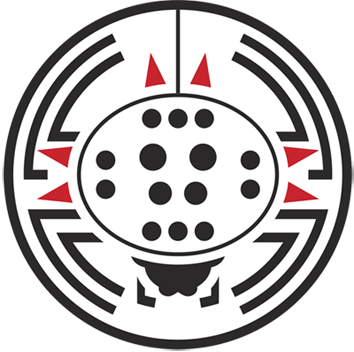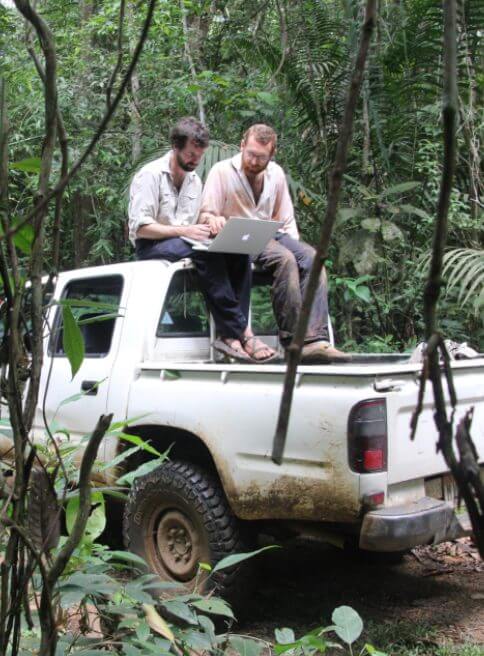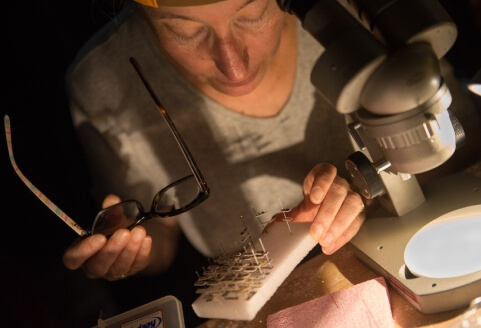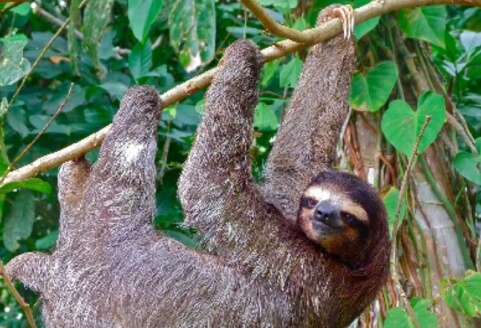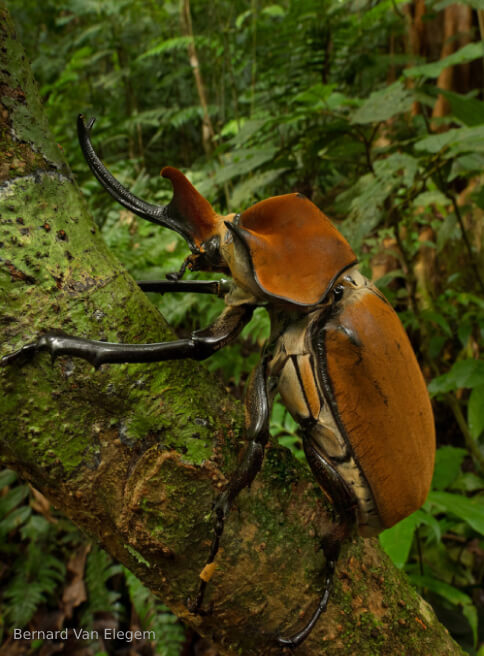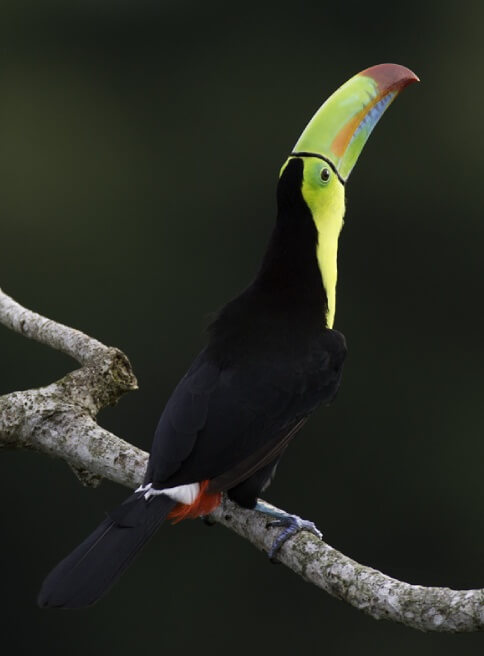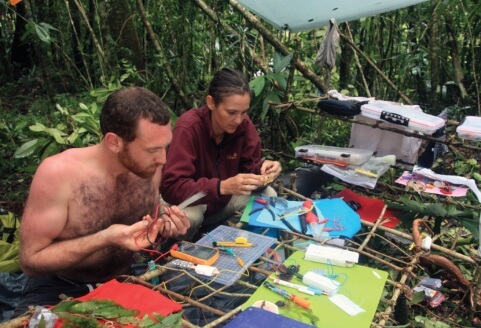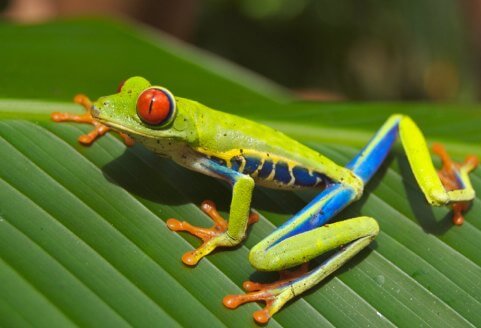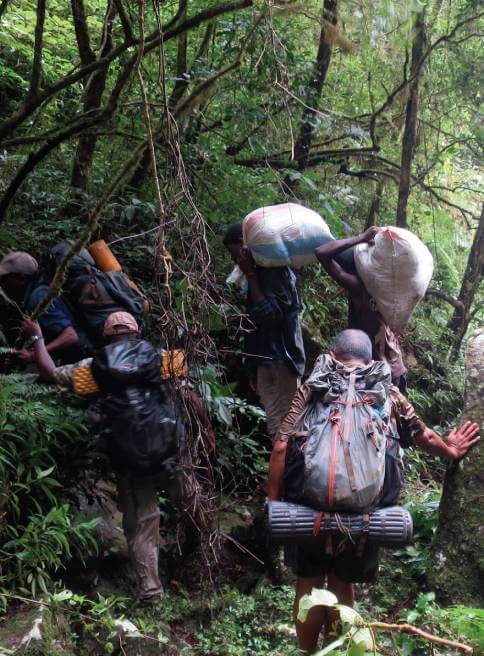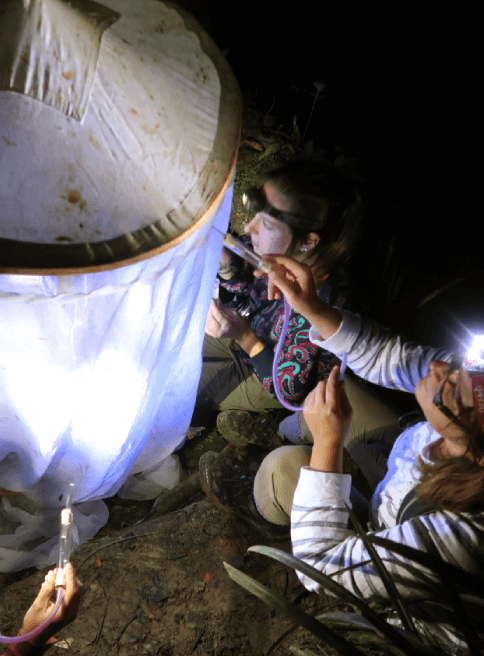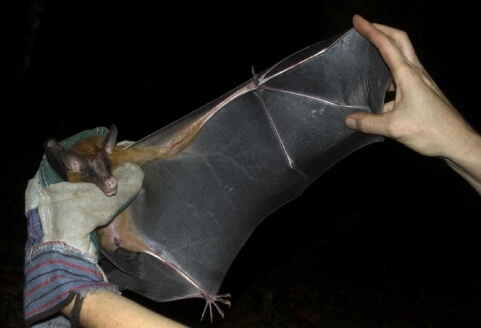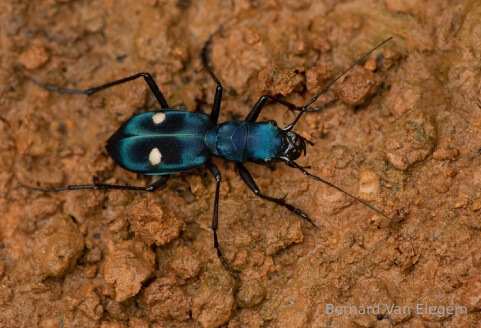EXPEDITION TO PANAMA
Join us in Panama on an adventure for science!
2023, Soberania National Park, Gamboa
For whom?
You don’t have to be a biologist! Anyone with a heart for nature, biodiversity, and conservation is welcome to join.
On this Expedition, we will be investigating the hidden world of the creepy crawlies of the rainforest: the “little things that run the world”. Together with the “Digital Naturalism” lab of Andrew Quitmeyer we will devise gadgets to “hack the jungle”. And, above all, we will try to discover new species of insects and their parasitic fungi. Not just any insects and fungi: parasitic fungi growing on parasitic flies that live on bats. So, we will be working on parasites of parasites. Exciting!
Day 1: Arrival & Welcome
- To begin our journey, we will have a celebratory welcome dinner in a hotel in Panama City where the whole team will spend the first night. Here we can answer any last-minute questions and begin to share with you the specifics of the adventures that lie ahead. You will have the opportunity to try some local delicacies and local fruits
Day 2: Soberenia National Park
- Morning: the whole team takes a joint taxi-van from the hotel in Panama City to the Soberania Field Station in Gamboa where we will be accommodated
- Upon the arrival, we will be setting up the lab and reveal to you some of our toys for sampling and studying invertebrates
- Afternoon workshops: (i) “Dunk, dry & sieve”, and (ii) setting up pitfall traps — hands-on entomology workshops to teach you various techniques to collect elusive insects in the field
- Lectures: “Taxon Expeditions – engaging the general public in biodiversity discovery” by Dr. Iva Njunjić, and “The Soberania National Park” by a researcher of the SmithsonianTropical Research Institute (STRI).
- Night walk—at night, a completely different array of species is active compared to the day. A night walk gives you insight into these species and if you are lucky you might spot sloths, capybaras, agoutis, and nightjars
Day 3: Dragonflies & General Entomology
- Morning workshop (i): “Damsels & Dragons”—we will collect dragonflies using entomological nets
- Afternoon workshop: (i) identifying dragonflies and damselflies in the lab; (ii) general entomology workshop in the lab—you will learn how to identify different groups of insects; (iii) intro to electronics – a workshop where we will make firefly costumes to try to signal fireflies
- Afternoon lecture: “Discovering and describing new species” by Dr. Menno Schilthuizen
- Evening: Bat catching begins! We will be capturing bats to find fungi on bat flies
Day 4: Hacking The Wild Part 1
- Morning lecture: “Hacking the wild” by Dr. Andrew Quitmeyer
- Morning & afternoon workshops: developing and building research devices—we will teach you how to build nifty gadgets to be used in the study of animal behaviour, for exploration, and outreach
- Evening activity: night walk
Day 5: Barro Colorado Island & Bats
- We will travel to the famous Barro Colorado Island. This 15-square-kilometer island in the Panama Canal is home to one of the oldest tropical research stations in the world. Almost 400 bird species, about 500 species of butterflies and 500 species of trees live here. Lucky visitors will see (and hear) troupes of howler monkeys, colourful toucans, and mischievous agoutis
- Lecture about botany and workshop on permanent BCI plots
- Trekking and exploring the jungle
- Return to the mainland
- Evening: Inspecting nets for trapping bats
Day 6: Entomology—discover the hidden world of insects
- Morning workshops: (i) collecting insect traps we have set up a few days ago, (ii) setting up Malaise trap
- Afternoon workshops: (i) sorting and studying collected specimens in the lab, (ii) working on fungi on bat flies and beetles
- Lecture: “The world of labouls” by Dr. Danny Haelewaters
Day 7: Hacking The Wild Part 2
- Morning and afternoon workshops: testing self-built devices in the field
- Lecture: “Deep underground in search of new species” by Dr. Iva Njunjić
Day 8: Describing New Species
- Morning workshop: (i) emptying Malaise trap and sorting specimens in the lab, (ii) working on the description of new species—guided by our specialists you will contribute to scientific publication writing
- Lecture: “Darwin Comes to Town” by Dr. Menno Schilthuizen
- Evening activity: night walk
Day 9: Cast Your Votes!
- Morning workshops: (i) birdwatching, (ii) setting up butterfly traps, (iii) lab work
- Afternoon workshop: working on new species descriptions
- Lecture: “Darwin’s Peep Show” by Menno Schilthuizen
- This evening, we’ll celebrate a successful expedition with a farewell party—during which we’ll vote for new species names! This is our unique chance to immortalise our team’s discoveries in the annals of science. We’ll also look back on our week together with a group slideshow and videos
Day 10: Jungle Departure
- Packing up the lab
- Traveling back to Panama City; arrival in the early afternoon
Post-Expedition follow up: publishing newly discovered species in scientific journals; update on the DNA results. Sharing photographs & video material.
The Expedition fee varies from 3,400 to 3,900 euro per person, depending on the type of accommodation (dormitory or double bedroom). The following is included in the price:
- accommodation in a research station in the heart of the jungle
- domestic travel (from Panama City to the research station)
- delicious local meals, including welcoming dinner
- hands-on field research & lab work, including equipment and research materials
- lectures and study materials, including a book
- publishing results in a scientific journal
Please keep in mind that international travel is not included.
We offer a discount for local students, local participants, and members of the media. Please contact us (info@taxonexpeditions.com) if you want to know if you qualify for a discount.
